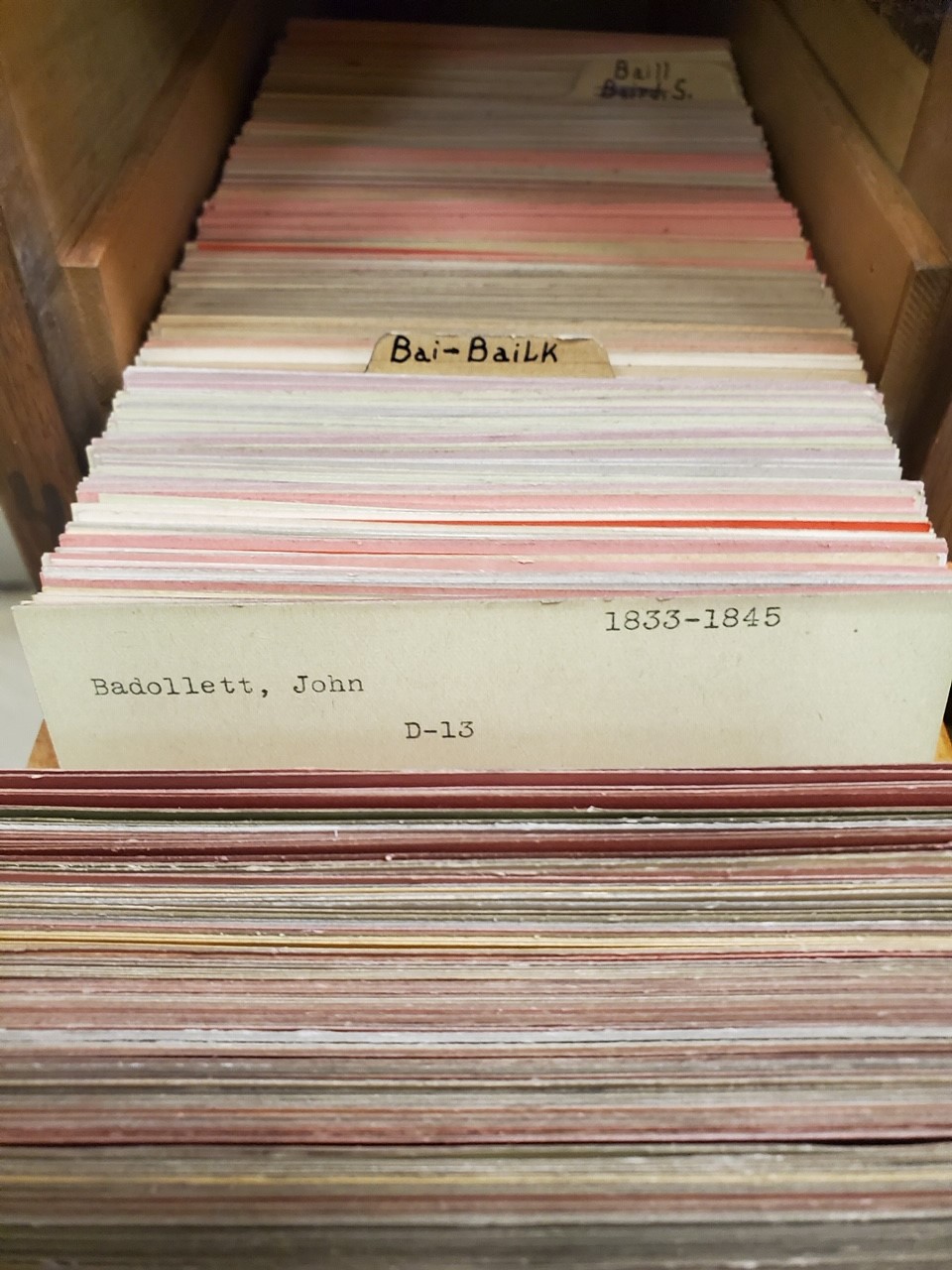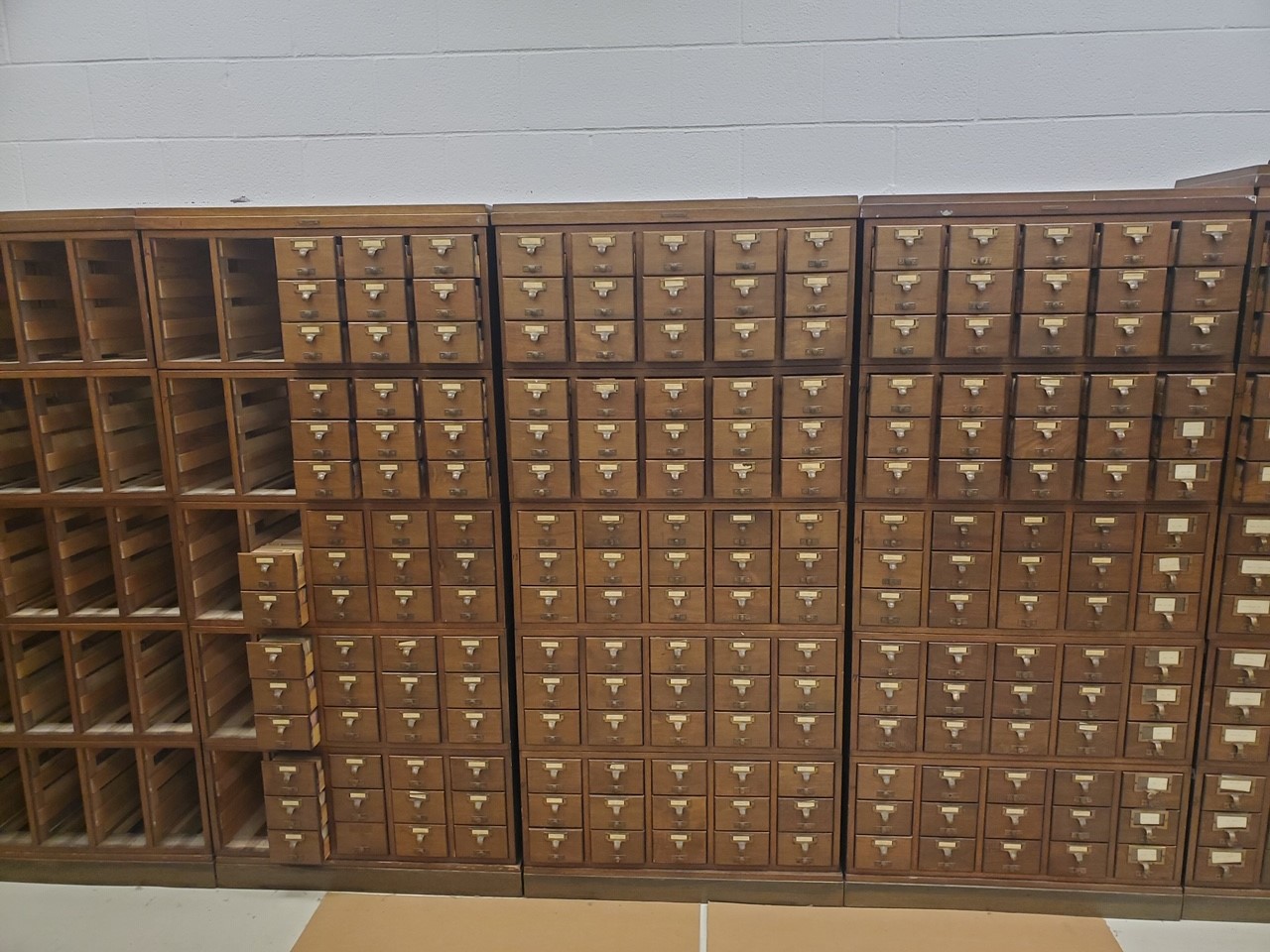Working From Home: The WPA Card Catalog
Much of our work at the Indiana Archives and Records Administration requires access to original state records, and can’t be done from home. Tasks like repairing Civil War documents, researching historic mental health records, digitizing documents, and accessioning new transfers to the Archives will have to wait until we can return. Our Imaging Lab also uses specialized equipment that can’t exactly be installed in someone’s home office.
It’s disappointing to put these functions on hold, but we are also trying to seize this opportunity to complete long-awaited projects. One of the first things to come to mind was transcribing the WPA Card Index.

The WPA Card index is a collection of over 400,000 cards which point to individual name entries in the Indiana Archives’ collection. The card index was created using Works Progress Administration (WPA) labor. Indexing began in December 1936 and was completed in late summer of 1938.
The WPA workers went through all of the records in the custody of the Archives at the time, dated 1850 and earlier, and created a card for every name they found. For example, they went through each Supreme Court Order Book and created a card each time they saw a personal name on the page. The cards are color-coded and use alpha-numeric codes to point back to the correct book and page. Some of the records they indexed include Supreme and Territorial Court records, land records, Auditor of State records documenting the creation of the canals and railroads, and military records.
 The WPA Card Index lives in a large card catalog in the Archives’ stacks area. Our archivists use it for research, but with over 400,000 cards, it isn’t exactly browseable. Currently, the card index is most useful for researching known names. For example, we can open the “B” drawer and quickly find over 40 references to John Badollet, one of Indiana’s founding fathers. Badollet’s name (spelled five different ways!) was indexed in Territorial Court records, Supreme Court records, land records, and Auditor records.
The WPA Card Index lives in a large card catalog in the Archives’ stacks area. Our archivists use it for research, but with over 400,000 cards, it isn’t exactly browseable. Currently, the card index is most useful for researching known names. For example, we can open the “B” drawer and quickly find over 40 references to John Badollet, one of Indiana’s founding fathers. Badollet’s name (spelled five different ways!) was indexed in Territorial Court records, Supreme Court records, land records, and Auditor records.
Once we’ve transcribed the index, it will be much easier for our patrons to see if their ancestors or research subjects are included in the index. The index is especially useful for locating Native American names, which often varied in spelling, depending on the clerk who wrote the document, and were written phonetically. The Auditor records name many Native American as well as early settlers who may not have completed land purchases and do not appear in any other index.

